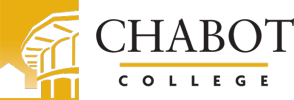
Environmental Science
This program map from the 2024-2025 catalog year represents one possible pathway to complete this program. Your pathway may vary depending on your transfer plans and also previous college credit, including AP Test scores, concurrent enrollment courses and high school articulated courses.
I'm ready to get started. What do I do next?
- Review this program map to get an overview of the required courses
- Meet with a counselor to develop your customized student education plan www.chabotcollege.edu/counseling
- Use DegreeWorks, an online student education planning tool, to track your progress toward graduation www.chabotcollege.edu / admissions / degreeworks
The Associate in Science in Environmental Science degree provides students with a foundation in scientific principles and the diversity of life. Environmental Science students study life at various levels of organization ranging from the molecular level to the entire biosphere. Greatest emphasis is on population, community, ecosystem and biome levels. Students answer scientific questions by critically evaluating scientific information, developing and testing hypotheses using the tools and techniques of the ecological, biological and physical sciences, analyzing data, and interpreting results.
What can I do with this major?
The Associate in Science in Environmental Science degree prepares students for careers in research, environmental protection and health, environmental law and policy, conservation management, agriculture, food, natural resource management and forestry. Preparation for some entry level jobs in careers such as environmental protection and health technician may require an associate’s degree while most careers require at least a bachelor’s degree and scientists or specialists will need to obtain a master’s or doctorate degree
Learning and Career Pathway
- Science, Technology, Engineering, Mathematics & Environment
Icon Key
This program map is under development. Please check back.